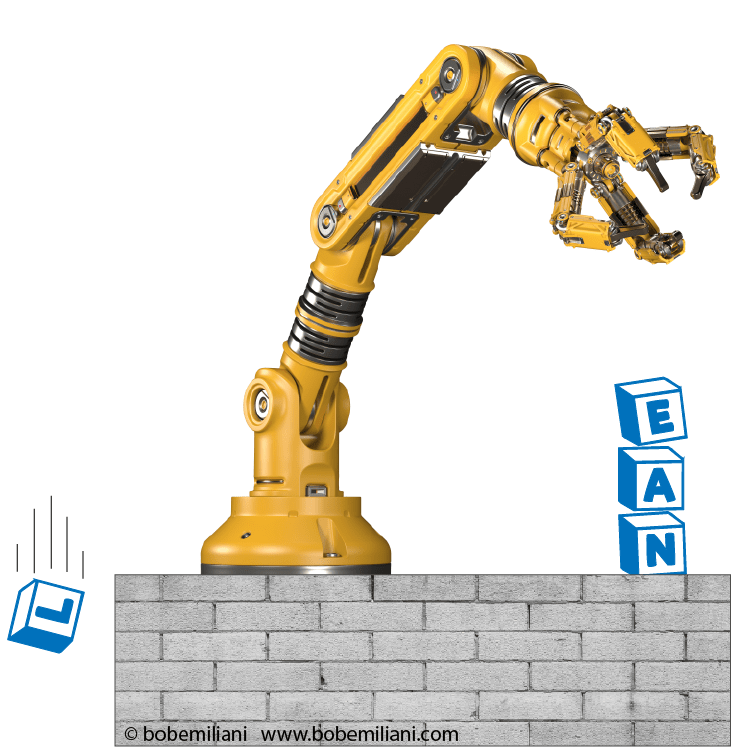COVID-19 is having a remarkable impact on business — not in terms of shutting businesses down, but what business leaders are doing to adapt and survive. A principal strategy is to shift to various forms of e-commerce to deliver the goods and services that people need. The “process improvement space” long occupied by Lean management — human technology — is increasingly being pushed aside and replaced by machine technologies.

Instead of improving production processes (the flow of production work), a major shift is underway to assure fast and accurate delivery. Instead of synchronizing supply with demand and eliminating warehouses as Chihiro Nakao commands, business leaders are building warehouses and equipping them with robots and other forms of automation, aided by big data, artificial intelligence, and other technologies. The companies that supply these “turnkey” solutions are the new “process improvement space.”
Instead of carboard mock-ups to determine layout, computer models effortless do the work of optimizing layout and efficiency. Observation? Learning to see? Human intelligence and creativity? The human touch? These are declining in significance, at least in the big corporations. What matters most is that purchased investments have a payoff, not whether they are well thought-out solutions to the problem of fast order fulfillment. The wisdom lies with the herd, not with outliers, just as it usually does.
The Darwinian-like rule that complex systems kill off simpler systems is in progress. Lean, and its patriarch Toyota Production System, has always emphasized simplicity, yet we are headed for complexity that will surely endure because of path dependence. The essential goodness, humanity, and morality of TPS and Lean increasingly comes across as naivete.
How does Lean management survive the extended upcoming period where “improvement” means “machine technologies?” It must organize as it never has before and fight for survival through collective action. Will Lean movement leaders make this happen? Can they make it happen? I have my doubts.
We may soon face a reckoning that the most fundamental of human technologies is kaizen, and that it is imperative that kaizen survive above all else in an era where “improvement” is widely understood to mean machine technologies. I expect this can happen only through individual initiative — yours and mine.
